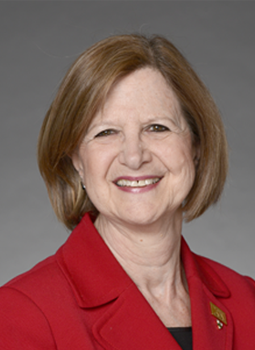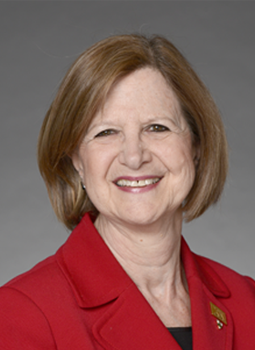In October, i was invited to present at the Canadian EntrepreNurse Summit, an event launched by SE Health (formerly Saint Elizabeth) to recognize nurse trailblazers. It was a day filled with ideas and fueled by determination to propel nurse innovators forward. I was inspired by the positive energy and commitment of entreprenurses, and proudly shared details of our work at RNAO, particularly as it relates to evidence-based policy and practice. I titled my presentation RNAO: A social movement in the making, and emphasized the vital role individual nurses play in thrusting ideas into the spotlight. I also talked about the power of our collective voice in creating a burning platform to optimize peoples’ health, as well as organizational and health system outcomes.
This issue of RNJ showcases members and how they have leveraged RNAO as their platform for a great career. Our features about new nursing graduates finding their way and about seasoned nurses entering the world of politics are real examples of how RNAO can propel you to become a powerful change agent benefiting patients, the health system, the profession, and society at large.
New nursing graduates are drawn to RNAO for the opportunities to connect with colleagues, find inspiration, and seek guidance to enhance their careers. Let’s welcome RNAO’s 3,802 new graduate members and 7,897 undergraduate nursing student associates. These 11,699 novice leaders are RNAO’s and the workforce’s future, and I venture to say their early socialization into RNAO powers them for success. From early on, they know they can make a difference – whether it is in clinical practice, administration, education, research or a political career.
At RNAO, we wouldn’t have it any other way. Power shared is power gained. And I can illustrate that through some examples.
RNAO is leading the world in producing and implementing best practice guidelines (BPG). New graduates have extensive exposure to BPGs in the classroom and during clinical placements, and when they become RNs, RPNs or NPs, they are “ready to go” adopters in the workplace. Whether you are a student who is learning about BPGs or a professor who builds lesson plans around them, you are able to look to RNAO to help you ensure excellence.
RNAO is designed – purposefully – to prepare members to make a difference in any role throughout their careers.
Researchers are also looking to RNAO and its BPGs, often using them to evaluate their impact on clinical and system outcomes. Similarly, administrators can tie clinical excellence, organizational outcomes, and the health of their workforce back to our healthy work environment BPGs that focus on leadership development, prevention of violence in the workplace, and intraprofessional practice.
If we move into politics, who better than RNAO to provide ongoing, practical, hands-on training to members who want to make the shift from the halls of power in health care (i.e. the corridors of any health institution as well as the streets of any city, large or small) to the halls of political power (i.e. Queen’s Park). When members respond to action alerts, for instance, they are not only advocating as individual nurses. They are also gaining insight on what their peers and the public are saying, which serves them well as politicians. Members have access to RNAO’s expertly developed resources that highlight why we are advocating particular issues, and these evidence-based tools go a long way to making the case for change at Queen’s Park.
If you are thinking about a move into politics, get a taste of political action by joining RNAO’s assembly or board of directors. In these roles, members live and breathe policy, and develop a deep understanding of how to use evidence and politics to move policy.
RNAO is designed – purposefully – to prepare members to make a difference in any role throughout their careers. It is not by chance that, in the late 1990s, we created executive network officers (ENO) for each domain of the association’s work (membership, policy, communications, finance and social media). ENOs receive training and ongoing support from staff with expertise in these areas. And they take those skills back to their communities and workplaces to further advocate and raise awareness of the need for change in the practice setting, the community, and/or at the broader provincial level.
I am in awe of the lived experiences shared by each one of the members we have featured in this RNJ, and those we have featured in past issues. I know their stories will inspire you. And you can use them to inspire others. Share them with your non-RNAO colleagues to motivate them to join and be part of this amazing collective. Tell them that RNAO is their ticket for success.


